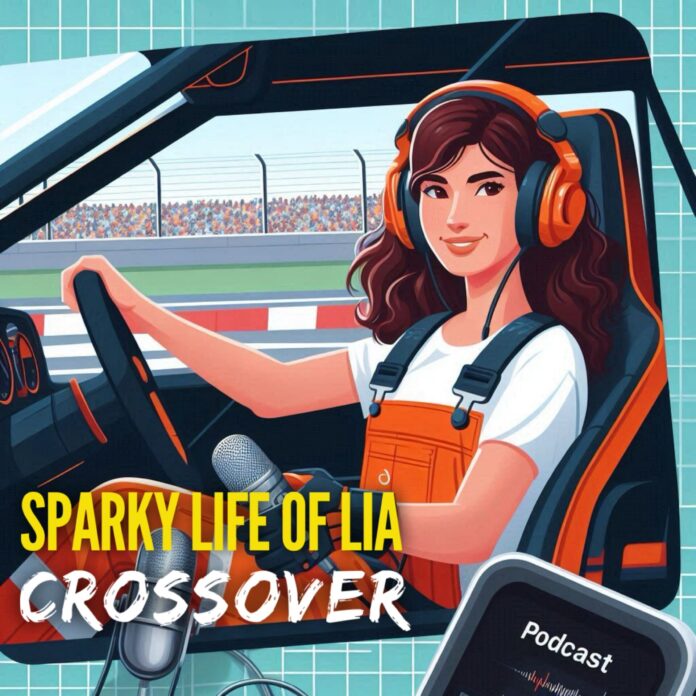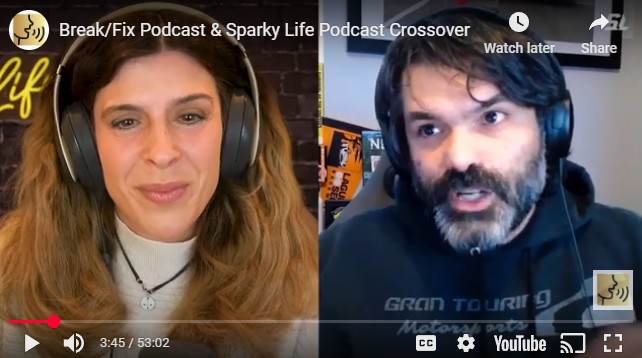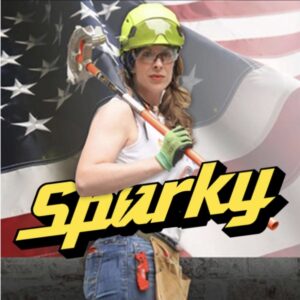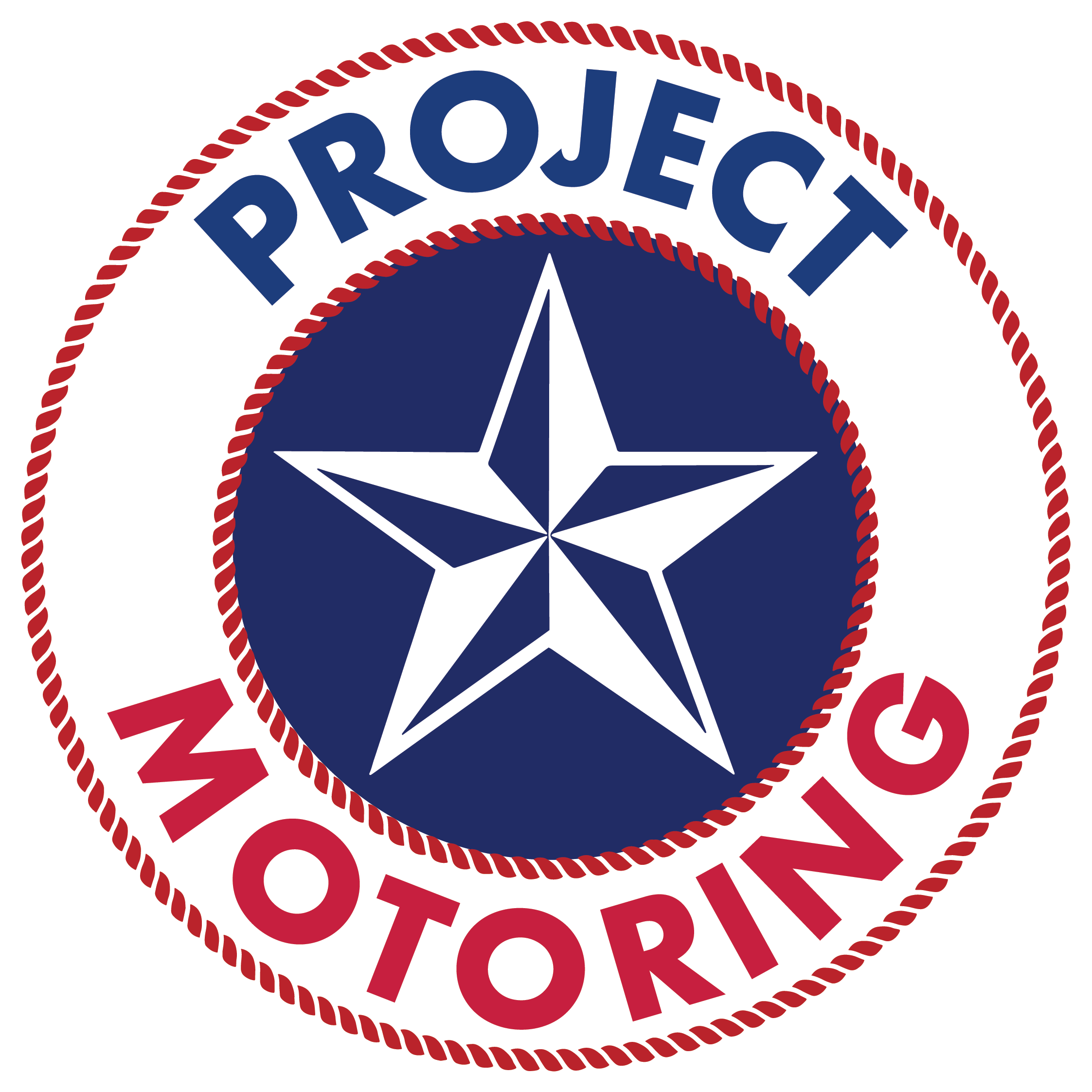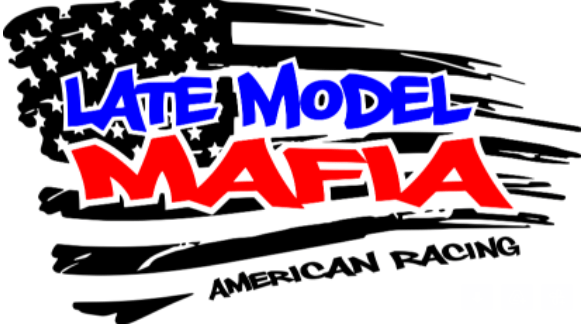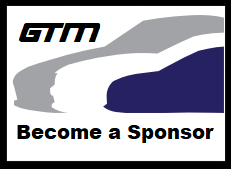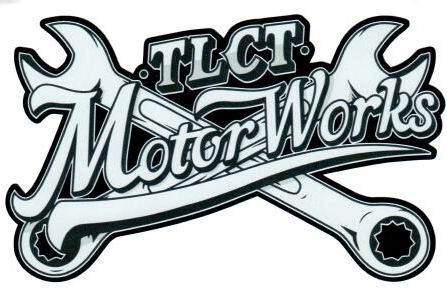In this episode of The Sparky Life Podcast, Lia Lamela welcomes GTM’s Crew Chief Eric, the co-founder of Gran Touring Motorsports (GTM) and creator of the Motoring Podcast Network. The conversation spans Eric’s background in motorsports, driven by his family’s passion for cars, to the creation and evolution of the GTM brand.
Discussion points include the extensive career opportunities within the motorsports industry, the similarities between motorsports mechanics and construction workers, and the importance of teamwork in both fields. Eric also elaborates on the educational aspects of racing, challenging stereotypes, and promoting inclusivity within the motorsports community. Throughout the episode, Eric’s enthusiasm for racing and mentoring shines, inspiring even those unfamiliar with the sport to take an interest in driving.
Episode Highlights
Skip ahead if you must… Here’s the highlights from this episode you might be most interested in and their corresponding time stamps.
- 00:00 Introduction to Today’s Guest: Eric from Gran Touring Motorsports
- 01:08 Sponsor Message: Supply House
- 01:41 Eric’s Background and the evolution of Gran Touring Motorsports and the Motoring Podcast Network
- 07:29 Parallels Between Motorsports and Construction
- 10:13 Breaking Stereotypes in Motorsports and Skilled Trades
- 12:49 Pathways into Motorsports without Formal Education
- 17:59 The Thrill and Skills of Racing
- 22:58 Encouraging Women in Motorsports
- 25:41 Sponsor Message: Supply House
- 26:50 Challenges in Construction Training
- 27:43 Knowledge Sharing in Racing
- 28:11 Female Dynamics in Male-Dominated Spaces
- 32:37 Danica Patrick and Women in Motorsport
- 35:29 Opportunities for Women in Racing
- 45:32 Getting Involved in Racing
- 48:10 Secrets to Success
- 51:24 The Importance of Teamwork
- 52:41 Conclusion and Farewell
Transcript
Lia Lamela: [00:00:00] Welcome back today’s guest crew chief, Eric owner of grand touring motorsports and the motoring podcast network discusses racing wrenches and all kinds of rides. Welcome to the sparky life. I’m your host. I am here to create the sparks in your life. And here we discuss the builders of our civilization.
All things construction career oriented every Thursday. I stumbled across Eric and his motoring podcast network and immediately thought, Oh my gosh. Freaking badass. My peeps are totally going to love this. I need everyone to know about Eric and his network. Forget the fact that he’s great to listen to and knowledgeable about his passion and is the pun Prince.
You know, I love the cheese all about the cheese. There is so much about the skilled trades of motor sports that I [00:01:00] didn’t know existed. So many career opportunities. I was blown away. So welcome with me, Crew Chief Eric. Before we begin, a quick word from our sponsor, Supply House. Before you make that first connection on your next electrical job, connect with supply house.
com. They have got a huge inventory with the top brands in stock and real customer service from real people. That’s what you call in and you speak to a human being pretty awesome. I highly recommend that you check out supplyhouse. com today. Now let’s start our show. So I ran across Eric and his GTM network podcast saying like, amazing, incredible.
And when I first started to hear. All that good info and check out the website. I immediately was like, Oh my God, my guys are going to love this. [00:02:00] Trisha’s a gear head shout out to Justin and Thomas. Love you. And they are going to literally go crazy for what you’ve got in store. So first, what the hell is.
Crew Chief Eric: So Grand Touring Motorsports, that’s what GTN stands for started many, many moons ago. There’s a whole backstory there about my family. It really starts with my grandfather coming over after World War II, looking for work. And he got a gig as a chauffeur at the Belgian embassy. And so my dad grew up in that environment and then they would go back and forth between the U S and Italy.
And then, uh, My dad eventually came over with my mom in the late 70s, and he was bitten by the bug, by the car bug. He grew up just outside of the Ferrari test track in Modena, and so he’s like, I used to watch Niki Lauda, you know, testing the Formula One cars. He always wanted to be a race car driver. And so he turned wrenches and modify on anything that he could.
And again, he grew up in the garages of the embassy. And so it was like, You know, in his blood to have the grease under his [00:03:00] fingernails and stuff. And so when I came along, you know, some of my earliest memories, the same thing. It was like. Dad’s swapping an engine on our Scirocco. And the girl’s like, what is going on?
I’m like two years old. Like, what are you guys doing? You know? So, but I started as a gopher and I learned, you know, doing things in the garage and things like that. And so at one point as my dad got older and further along in his career, and he wasn’t a mechanic by trade. He was actually in the mainframe development programmer industry.
Right. So. Cars were always his hobby. He was moonlighting. You know, he was racing. He was a national champion in autocross and other things like that. And so always working in the garage. That’s where we spent all our time. That’s where my dad and I bonded, you know, and I learned a ton of things that way.
And so later he developed a business called Grand Touring Motorsports and he sold parts and consulting and, you know, helped tuned cars for racers. Predominantly European stuff. And then unfortunately, he was taken from us at a pretty early age. And so that all kind of came to a [00:04:00] close. And several years later, friend of mine and I got into road racing and we were going together and doing all these track events and turn the wrenches on our cars.
And I ended up being his mechanic and my mechanic, which was tough. We had very similar cars and you can see them on our website. I saw the Jetta. The golfs. Yes. Golf. Golfs the twin GTIs.
Lia Lamela: There you go. . So can you tell I’m not, hook your head . You’re gonna help me with this though. You’re gonna help me.
Absolutely.
Crew Chief Eric: So we were sitting around one day and talking about, you know, how do we keep all of our guys together? You know, we’re building a team, we wanna go endurance racing, we wanted time trials, all this kinda stuff. And so. He was like, Brad goes, why don’t we create a club? I said, okay, well, what are we going to call it?
Like I can do all the web work, you know, cause I too followed in my dad’s footsteps as an it guy. And so he’s like, why don’t we just call it grand touring motorsports? And so 2013 ish, that was all reborn a couple of years after my dad died. And it has quickly evolved in the last almost 12 years now into a lot of different things.
[00:05:00] So if you kind of break it down, there’s three big components. There’s the clubhouse, which you can find from our primary website, which are Our main website turned into a digital magazine called Grand Touring. We’re 30, almost 32 issues now. So 32 quarters of the magazine, it’s a long time to be out there as a digital production.
And then last year, as we grew our podcast, which was derived from our writing and our journalism and, you know, going to track days and all those kinds of things, we developed something called the Motoring Podcast Network. So our headliner show is called Break Fix. That’s a specific. Grand Touring Motorsports production and then we brought on other creators that we were overlapping with that were struggling in the industry and we created this thing called the Motoring Podcast Network.
So we feature them now not on a podcast but what we call a variety show. So every week something a little different. You might be hearing from William Ross from the exotic car marketplace talking about Ferraris. The other week you’re hearing from Professor John Summers, the motoring historian, about something that’s going on on the left coast of the country.
Or screen to speech [00:06:00] which is a all woman production about sim racers that are coming up and making their way into motorsports. We’ve got things like what should I buy, which are really fun panel episodes with guys from motor trend and analysts. And we talk in debate, we buy for fictitious, you know, customers and collectors and things like that.
We’ve got our drive through news every month, you know, so we, there’s a little bit of something for everybody and that makes it nice. Tune in when you want. Hey, there’s five or six episodes I missed, but I really only care about, you know, the drive thru news, and those are guaranteed at the last Tuesday of every month.
Lia Lamela: Well, um, after I had the opportunity of kind of like stumbling upon you, right, the universe works in mysterious ways. I was so intrigued about that. Motorsports and the mechanical aspect being in construction. And once I started listening to the episodes and I’m somebody with no motorsport, like it’s like racing is I have.
Baby eyes. Oh, just don’t say that cars
Crew Chief Eric: are [00:07:00] an appliance because they’re not.
Lia Lamela: I know that much. I know that much. Okay. So, and I’ve got a lot of girlfriends who are mechanics and things like that and shout out to Trish. Total gearhead. She like loves this stuff. But I just never kind of gained a passion for it mainly because I just wasn’t exposed.
And as I was listening to your episodes, I was like, Oh my gosh, there’s so many correlations. to the construction industry and skilled trades regarding this. So you can, you expand on that for me.
Crew Chief Eric: Yeah. So, you know, checking all the stereotypes at the door, I suppose there are a lot of similarities between mechanics and construction workers.
And so, you know, working with your hands, it is a skill, it is a skilled trade. You know, our tools of choice are wrenches, wrenches and spanners and ratchets, and instead of claw hammers and nail guns and power tools and things like that, so. The idea is still the same. You’re building something or you’re dem, you’re demolishing some, you’re taking it apart.
Now, in our case, when we’re dismantling [00:08:00] something, it’s to repair it, make it better, upgrade it, whatever, and then put it back together because we need to put it into service, especially in the motor sport world, it’s under such. Strenuous conditions that the manufacturers were like, well, we didn’t really intend it for that.
So we get, you get a little bit more creative on the motorsport side of the world. But the same is true in construction. You’re like, wow, that wall isn’t necessarily straight. So we’re going to have to do this, but by eye, it’s going to look really good, you know? So there’s a little magic, a little black magic there, if you will.
But at the end of the day, your thing, you have to think on your feet. You have to be resourceful. You use a little bit of MacGyver tactics, you know, in the same way. There’s also a community around. Let’s say mechanics, wrench turners, and even in the motorsport world, in some ways, I often like to relate motorsports to the military because it’s one of those situations where you do not succeed alone, right?
You have all these specialists around you, whether they’re programmers, they’re race engineers, they’re. Folks that specifically work [00:09:00] on suspension or are knowledgeable about tires, all these different moving pieces because some people like maybe yourself, you look at a car and go, it takes me from point A to point B.
But what you don’t understand what we like to highlight on the show is there’s so many different. Uh, careers that influence a car, right? Chemists, physics, designers, aerodynamicists, electrical engineers. I mean, the list goes on and on and on and on to build this thing that we take for granted that takes us, you know, to Dunkin Donuts every morning or takes it to the construction site, right?
So, uh, When you put all that together, rising tides lift all ships. And so that is true of just general mechanics. Cause when you ever walk into a shop, whether it’s a race shop or a minor key, the team has to work together. Not every one mechanic knows everything. There’s a guy that’s a specialist in alignments or exhaust or engine work or tires or whatever.
But again, to, to get that final product, the team has to work together. To make the customer happy at the end of the day, but to get that car safely back on the road or back on [00:10:00] track and be able to perform at its ultimate.
Lia Lamela: Yeah, that’s exactly the same with the infrastructure of construction and how that all operates and having key specialists from different areas.
Um, it’s a, I can’t help but think about the term grease monkey and, you know, the thoughts that come to mind when I think of mechanic. I happen to know many mechanics being in the skilled trades, and none of them actually fit the stereotype description. Like in construction, there’s many stereotypes. Do you come across that in more sport, motors,
Crew Chief Eric: motorsports?
So if you. If you take the obvious comparisons, like, Oh, mechanics are just a bunch of substance abusing degenerates, blah, blah, blah, blah. You probably hear the same thing about construction workers, right? Yeah. The difference is we’ve got grease under our fingernails, you know, instead of, you know, splinters in our hands kind of thing, right?[00:11:00]
Now, I make the joke all the time that I lived this duality in my life, right? Bruce Wayne by day in the IT industry, supporting the military and those kinds of things for many, many years now. And then at night. Right. I’m doing the podcast thing. I do journalism, but I’m also turning wrenches. I’m prepping the race car.
I’ve got this championship. I’m working towards and I go into a meeting and they’re like, Yeah, I work in computers, you know, and my fingernails aren’t that great, you know, all chewed up and my hands are gnarled because you inevitably bust your hands when you’re working on the car because there’s never any space.
I also joke, I live my life a quarter turn at a time, and that’s not a quarter turn on the racetrack. It’s a quarter turn on the wrench. So that being said, I think the same is true with the construction industry as it is for mechanics. But in, in the same way, even in my day job, It’s hard to live it all the time.
You have to find another outlet. So for me, turning wrenches was always a backup. It’s like if the IT world collapses or that, you know, whole white collar [00:12:00] sweatshop that is programming is not for me anymore. I can fall back on being a mechanic. And the interesting part is I can always go get my ASC certification and go work at any, you know, mom and pop garage.
And for those that
Lia Lamela: don’t know. ASC stands for, what is this ASC certification or what is it all about?
Crew Chief Eric: Uh, shoot, hang on.
Lia Lamela: Googling moment.
Crew Chief Eric: I don’t want to get the acronym wrong. It’s the automotive service excellence certification. So you’ll see that on the side of a lot of garages. We have ASC certified mechanics, which basically means that they went to school to be a mechanic.
They went to like Lincoln tech or they went somewhere else and they graduated with a degree. In automotive mechanics and diagnostics and all those kinds of things. So I don’t have that that’s additional schooling. It’s additional cost. But what’s interesting is in the motor sports world, I don’t necessarily need that.
I can bring my previous career experience and my own personal wrench turning experience with me [00:13:00] to become part of a team. And there’s different ways to get involved in race teams, whether it’s through, let’s say you’re a disabled vet and you want to come in through something like operation motorsport, where they find you placement on a race and you can use the.
The skills that you learned in the military on the team, you know, things like that. So the same is true for a layman like myself, where it’s like, well, you’ve got a background in it. Do you, are you interested in analytics? Do you want to study, you know, the suspension geometry data that’s coming back, you know, real time stuff, you know, how do you want to be involved?
And so even for construction workers, where it’s like, Hey, we need to build this. We need to do that. There’s a lot of these other, other types of. Uh, skills that can be translated even into the world of motorsports if people are looking to cross over. So I joke sometimes if you can swing a hammer, you can turn a wrench.
There’s a lot of translation there as long as you kind of understand the principle as my dad used to say If you can take it apart without breaking it, you can put it back together. Yes
Lia Lamela: Well, I mean, uh when you talk about not [00:14:00] needing a license or degree to get into that career path that’s so Absolutely correlates with construction because there are many different careers in skilled trades that you can do that.
And I am a big fan of this being somebody who is, uh, learning challenged, air quotes. Um, I don’t like the idea that you have to get some sort of licensing or academic accreditation in order to do that. Do you, the career that you’re looking to do now? I’m not saying that there shouldn’t be standards or qualifications.
I am saying that what we currently have is too exclusive and doesn’t truly project someone’s abilities in that career.
Crew Chief Eric: Yeah. And I think for those of us, as I like to say, petrol heads of a certain age, we grew up under the fallacy that, you know, you had to go to college. to make it in life. And so that is applicable to Xenials like myself [00:15:00] and, you know, elder millennials and millennials and things like that.
So there’s other ways to make it right. But again, I sort of had no choice because And I, and I say that, I know that’s kind of strong, but I came, I came around as a first generation Italian American. And it wasn’t like, Oh, you know, we came over and Ellis Island in the 1800s. It’s like, no, my parents came over in the seventies, like really late.
Right. And so they didn’t, they didn’t finish school. They wanted the best for us. They broke their backs doing the work that they could. And my dad was very fortunate. He was a smart guy and he got into the right place at the right time, you know, They wanted the best for me, but they’re like, you need to go and do this it stuff, but I want to work on cars.
No, no, no. You need to do this. So I was sort of stuck, but in a way it worked. It did allow me this weird Batman Bruce Wayne lifestyle that I have, but I also am not burnt out on being a mechanic where the last thing I want to see or hear about is, Hey, can you help me fix my car? It’s like, I’ll say [00:16:00] yes, because for me it’s cathartic to go out into the garage, but don’t ask me to fix your computer.
Don’t ask me to diagnose, you know, your Mac.
Lia Lamela: Write you down on the list for when I’m having more trouble.
Crew Chief Eric: Construction worker, the last thing you want to hear is, hey, can you help me build a shed? No, leave me alone. You’re dead on. Do
Lia Lamela: you know how many times I get like, oh, so you’re an electrician? Can you install this lighting, you know, for me?
Can you like let my landlord see this? Freaking love it when I say I’m an electrician because they’ve always got projects and stuff. And you’re right. The last thing I want to do is do electrical work on my off time. Yeah. I enjoy it during the day. I love what I do, but then I also need a break. Well,
Crew Chief Eric: what also helps me love my hobby a little bit more is there’s a lot of YouTube certified mechanics now.
So I’m like, here’s a video, have a nice day.
Lia Lamela: I would feel irresponsible directing people to a YouTube for electrical [00:17:00] work. But they’re out there, which is a little scary. Um, I don’t know how I feel about that exactly, but I love the overall idea, which is sharing knowledge, right? Absolutely. That’s number one. So I did not know how much was involved in racing.
I didn’t have a clue. I haven’t been exposed to it. Nobody in my family is like into NASCAR and coming across you in your show has gotten me into this. And I always like thought of myself as somebody who’s not a daredevil. In fact, I’m afraid of heights. Don’t ask me how that works with being an electrician, but I, even though I will get up in the lift and climb and be whatever, I don’t love heights.
So I don’t love, like, high adrenaline activities, which is the exact opposite of most of my peeps. Most of my people love, you know, high adrenaline, and I would say a lot of them are adrenaline addicts that use it in a healthy way when it comes to construction and building. Can you [00:18:00] break down the racing aspect and what really goes into this?
Crew Chief Eric: Yeah. I think it’s exactly how you described it there too. It’s not for everybody either, because one of the things I realize as a coach, right, so I, I, I spend time helping what I call want to be race car drivers. Sometimes people that have more money than brains, right? I bought this super cool car and I want to go fast.
And it’s the whole Ricky Bobby moment. Right. But it’s like,
but you know, it’s amazing that you got here safely in the first place. And I’m not trying to be any sort of way, but it’s like, okay, Great. You got 700 horsepower under the pedal and you have no idea how to use it. And I hate to say anybody can go fast in a straight line and that’s not a knock against other disciplines of racing like drag racing because drag racing is extremely complicated and you are just going fast in a straight line.
But there’s a whole science to that too. But road racing specifically, the guys that come to the track with their brand new ZL1 Camaros or their Corvettes or their Porsche or their Mustang, you know, [00:19:00] whatever dream car that they’ve Waited this whole time to get and they, they just want to go fast. It’s like, look, safety is paramount in racing, especially road racing.
So one of the things that we work on, and I find it so shocking, the adrenaline junkies, right? The guys that just want to go faster gals that want to go fast is I put them in the right seat of. A complete shit box, like 200, 200 horsepower Toyota. Right. And they’re like, Oh, a hundred miles an hour is a struggle down the straightaway.
Yeah, but I’m going to go into this turn at a hundred and they’re not going to lift. And they’re like, excuse me, what? And we’re already through it at that point. And you see them white knuckling and grabbing and freaking out. And then the there’s that sphincter puckering moment, right? Because they’re, they’re not used to going that fast.
Fast in a turn. And that’s where the beauty of driving comes from is being able to work with the machinery, understanding your machinery, what the limits of it are and how you [00:20:00] can capitalize on it or maybe stretch it a little bit. So when we’re working with students, that’s where we’re trying to get them to really go fast.
And I have this whole process where it’s like speed is the last thing. Like we need to work on orientation, memorization, consistency, then we can go faster. But the speed actually comes naturally if you follow that method. And so you get the rush and people will come away from what we call a high performance driver’s education weekend and be like, I thought I knew how to drive when I got here and this has been an eye opening experience and we can take it in different ways.
Do you want to learn about accident avoidance? Do you want to do aggressive stuff? You know, not, we’re not going to do stunt driving at a track day, but you’re going to go home with a different appreciation for your car than what you came with. And what you realize too, is you thought you could go fast on the road and you realize how dumb it is to go fast on the road and your speed starts to just decrease.
And you’re like, you know what? I’m more situationally aware now I’m looking up, I’m looking ahead. I can see traffic patterns. Like why is that guy doing that? You know, [00:21:00] accident avoidance, all that kind of stuff. But it’s, it’s interesting how motorsport tampers some of that adrenaline. And there’s a really cool graph you can create that says, you know, when you start out, you’re all like, Oh, super anxious and I’m going to kill this.
We’re going to light up all the tires and the car is completely erratic and you’re completely nervous. And then it’s like. It starts to converge, and you become cool as a cucumber, and you can throw a car around a corner completely sideways, and it doesn’t even phase you, so that adrenaline level Comes down as you start to master the skill, like any skill.
I mean, you’re, you’re doing electrical work. It’s dangerous, but after a while you get comfortable with it. Now you don’t want to become overconfident because that’s when you start making mistakes. So same is true on our side.
Lia Lamela: Right. Right. Okay. So first off, I want all the info on your class. Because even though I don’t have any desire to be a race car driver, I would love to take a class like that.
Just the way you talked about it and learn how to become one with my vehicle. Like that [00:22:00] is so cool. Not to mention how much I am in my vehicle. Many construction peeps know this, like we are constantly driving all over kingdom come. And. I have always thought of myself as that stereotypical girl can’t drive, like I suck at driving, and I don’t know how accurate that actually is, because I have no one to compare my skills to, and I just drive.
Cautious, I would say and slow and annoy people with that on the road, but I would totally dig a course like yours where I could become more confident in my vehicle and really assess my abilities to understand the mechanical aspect.
Crew Chief Eric: So not to knock the boys. I get to instruct all sorts of different people, you know, different walks of life.
And what’s really interesting, you can pick up on other hobbies by the way they drive and stuff like that. I, one guy, I could tell he was a pilot because the way he held the steering wheel. Oh, wow. So [00:23:00] when I have a lady in the car though, I always find it to be the most satisfying experience because.
There’s less resistance to learning.
Lia Lamela: I’m like, because on a construction level, like, okay, go ahead. Go ahead. I want to.
Crew Chief Eric: So there’s this open channel to absorb the input and change is done. Right away. And it’s nice to see it be iterative as well, because when you’re teaching at the track, you’ve got a corner by corner, then segment by segment, then you do the whole lap and it all comes together.
Right? So you got to start from the basics, but the ladies are always so much more open and again, not to knock the guys. Cause there’s plenty of great guys that are receptive, but you got to sort of check your ego at the door because you have to realize you’re doing something extremely dangerous, right?
And you’re out there with 30 of your closest strangers. Like, I, you don’t know if you pass the other guy that’s next to you on the way there, you know, and you pissed him off doing [00:24:00] your road rage thing or whatever, but the point is, you’ve got all these other moving objects at speed, at high speed that you need to be receptive.
It’s not just, I want to go fast, right? And so that’s where it all comes together. And people come away from a weekend experience like that. And they’re like, whoa. But on the other side, the apple does not fall far from the tree. My sister is also a certified coach and she gets the opposite. What, what is this girl going to teach me?
Right. What she teaches you is that when she blows by you in her 200 horsepower shit box. You got something to learn when you’ve got 700 horsepower under your foot. Right. And so she, she always feels the challenge that there’s this resistance with the guys that they don’t want to learn, but I get that too, because it’s like, we’re hard headed.
We think we know everything I’ve been driving since I was 16. This ain’t driving. This is preparing you to go racing, right? This is a whole different ball game. If you want to go down that route. Right. So. But there’s a lot of fantastic [00:25:00] ladies. They’re super fast. They’re very competitive in all the different disciplines of motorsport.
That’s the other thing. It’s not just NASCAR, right? There’s formula cars, meaning open wheel cars. There’s rally, there’s drag racing, there’s autocross rally car. I mean, it goes on and on and on and on, and you’ll find women everywhere. And so kind of open your eyes and pay attention to that, but, you know, listen to their stories, figure out how they, they came up through the system.
But if you get a chance to ride with one of them. Watch how they drive. Very precise. A lot of finesse. And you’re like, wow, that’s, you know, it’s not this brute force. We’re going to manhandle the car in the corner kind of stuff. It’s, it’s, it’s just been a beautiful experience to work with the ladies and help get them up through the system.
Lia Lamela: Let’s take a quick break to hear from our incredible sponsor, SupplyHouse. Finding parts shouldn’t feel like catching lightning in a bottle. Get the parts that you need delivered straight to your door with SupplyHouse. com. They have a free trial. [00:26:00] Massive inventory of electrical products and nationwide shipping.
All the top brands are there and they hand pick their selection with electricians and contractors in mind. Uh, Sparky’s do appreciate. So whether you are doing a residential service change or a commercial update, they’ve got you covered. They also have friendly customer service from real customers. So you can build, repair and upgrade with confidence.
It’s online convenience with a brick and mortar personality. What is not to love and see how much time you save on your next job at supply house. com. Now let’s get back to the show. Okay. You hit on so many things there. So in construction, it is the same with the guys. They want to reach strength. They don’t.
necessarily want to be taught [00:27:00] because, and this is something I learned as an apprentice right away, you never ask a guy why. And the reason is they view that as a challenge. Like I’m challenging what they’re telling me to do. And I’m not, the why is because I want to learn why you are instructing me to do this this way so that I can absorb it fully and really understand what you’re asking of me.
But when I would ask my journeymen why they would get furious, and the number one thing is because I’m telling you, because I’m fucking telling you, I’ve been in here for two decades. You do it how I tell you to do it. Well, that’s good and gravy. I’m not, I’m not challenging that and trying to understand it.
So I would have to learn ways of asking why without using the word why.
Crew Chief Eric: So what’s interesting about the racing world is when you ask why be prepared for a deluge of information, we are very happy to share. It comes off as mansplaining a lot, but it’s an, it’s an interesting environment where knowledge transfer.[00:28:00]
is the norm, right? So asking why in motorsport and racing, I’m just warning you, be prepared. You’re going to get more than you bargained for.
Lia Lamela: I love it. I love it. I think that’s fantastic. And as a female in a male dominant space, I would get exactly what your sister got, where like, who the fuck is this chick trying to tell me what to do basically.
And I would have to learn that. So in the construction, um, hierarchy, Because that’s kind of how it’s built. It’s, it’s very archaic in how they perform team and team building and what they consider leadership is one of our downfalls and something that Spurgy Life is passionate about changing. You know, you talk about teams and the importance of teams and it sounds like on.
Your end of the spectrum, it’s more collaborative. It’s less gatekeeping. It’s more embrace embracing and wanting to build together, which brings the most successful teams, like a hundred percent, [00:29:00] right? The stats are there. So when we’re talking about the hierarchy and the structure, what you typically see is a foreman who comes in, I call them, um, table flippers, tool tossers.
Okay. Like Just this is how it’s going to be done. No one challenged me, you know, being on the chest kind of deal, right. Which isn’t very effective. And when, you know, I’m emulating all that I’m seeing when, so when I got into a position of leadership, I tried that approach and as a female doesn’t work, doesn’t work at all, like really bad.
I don’t approach, I do not approach the leadership aspect when I’m working with my teams in that fashion at all. Uh, forget the fact that I’m a female trying to come in on an aggressive as opposed to assertive aspect. Um, but it’s, it’s a particularly powerful. [00:30:00] Poor dynamic when a man does it and it’s worse when a female does it.
Crew Chief Eric: And it’s interesting you bring that up. So I’ll share a story from my sister’s playbook. And so we were at Virginia international raceway for an event. We were called in during the day to do a special exercise with a group of Folks from the Cadillac club. And so you’ve got these really nice CTS V black wings, you know, again, five, six, 700 horsepower vehicles that you’re like, wow, that’s pretty cool.
And she got put in one of those cars and she’s, she’s uncomfortable with really, really high horsepower, especially if it’s modified beyond factory. Cause she’s like, look, you start bolting on parts. You don’t know where the ceiling is anymore, and it’s outside of factory spec. So it’s sort of hard to gauge like how far we can go.
And her student wasn’t resistant. Me, I’ll call him a little stubborn and she, she was talking to me and consoling me at one of the lunch breaks. And she’s like, I’m having a hard time, like getting this guy to just back off a little bit. We can go faster if he goes [00:31:00] slower, but he just jams the throttle.
We’re coming out of the turn sideways. And he goes, we’re going to end up in the wall if he doesn’t stop. Right. So, and she’s trying to tell him and he’s just, it’s not going in. And at one point I just told her, I said, look, let him screw up. Let him eat, eat the, you know, not eat the guardrail, but it’s like, go have an off, do it in a spot where you know, there’s enough runoff room.
And then he realizes, Oh, I’m going to break my car. We’re going to hit something. He’s going to suddenly panic now. Okay, coach, what do I do now? Right. So she had one of those moments and that was the switching point. It was like, you had to run head first into the wall, you know, figuratively speaking before he would listen.
And then he got better. And then he got faster. So it was funny, you know, slow in fast out is the is the methodology. And so that’s what she was trying to get him to do. And as he started to slow down, his average lap speed went up, which means his lap times were going down. But to realize that you’re wasting time hooning around the track, he just he wasn’t getting it until he had that what we call code [00:32:00] brown moment.
Lia Lamela: Code brown moment. Okay, you’ve got to elaborate on that for me. Where does that come from?
Crew Chief Eric: You get like an oh s moment, right? There’s code red and there’s code brown.
Lia Lamela: It’s brilliant. I, um, I am obviously parshful to, I resonate with females in, in those types of spaces because I, there’s just so much crossover and correlation and relatability.
And uh, being a podcaster, I love podcasts. And I’m definitely a Joe Rogan fan. And when I deep dived into your podcast and all of the goodies in store there, I actually had Joe Rogan’s podcast pop up with Danica Patrick on being a woman in racing. And I, you know, of course was like, Oh, wow. Okay. Here’s a female in a male dominant space, uh, [00:33:00] totally was interested in what she had to say and then was shocked when during the interview she said that, um, you know, a lot of the guys don’t like it when, uh, don’t want a female to pass.
Right. So, cause he was asking her like, what’s her experience. She was like, I don’t know. I’m not a guy. I’m just gal. And. And. And. This is my perspective, and a lot of the guys don’t want a female to pass them. But I get that because I wouldn’t want a female to pass me either. And then Joe Rogan was like, wait, wait a minute.
Um, so are you saying you wouldn’t care if a guy passed you? And she’s like, well, It wouldn’t be that bad, but it would be worse to have a female pastor. So she, I respected that she was openly talking about her cultural bias that like women are shitty drivers or that they, you know, it’d be somehow worse to have a woman, uh, pass her as opposed to a male.
Now, that being said, I had no idea how many women were actually in this world. [00:34:00] And I. Being somebody who, you know, we talked about those two types of women and male dominant spaces where one is like me, where I’m like, ah, other girl, yeah, instant friends, like so much to talk about. And then the other female is going to be, you know, kind of very standoffish and look at it in a negative competitive light.
And during that interview, something that I noticed about Danica in particular, which by the way, I did reach out to her to see if she’d come on the show, um, was that she didn’t seem really open or wanting to embrace other women in the industry, which I’m like, bump, like, dude, like, what are you doing, man?
Like, that ain’t the way. Yeah.
Crew Chief Eric: Yeah. So to not. You know, spread vile gossip or stories or whatever. But I’ve heard from several people that she is very much about self promoting herself, right? And not about [00:35:00] empowering other women. She’s that competitive, right? Where she’s like, no, it’s me or nothing. Now what I don’t want to do.
As part of that conversation is misrepresent motor sports as a whole, because NASCAR nation has its own attitudes towards, you know, women drivers and, you know, being mixed in with the boys and, you know, the evolution of NASCAR itself. Now, it doesn’t speak for the FIA, which is the governing body behind World Rally and Formula One and a bunch of others.
And then drag racing, the NHRA, there’s all these different sanctioning bodies, but. The consensus is we need more women, we need more diversity in general in racing, but Danica is not a great representation for women that are getting excited about motorsport. The people you want to look up to are working and we’ve had the privilege of working with them for many years now is the folks over at like WMNA, which was started by Lynn St.
James. She was at Indy seven times, you know, and rookie of the year, all this kind of stuff. She’s had a really long racing career as a. Successful professional racer. [00:36:00] You’ve got people like Michelle Mouton, who is a world rally champion. You’ve got Steffi Bao, who’s the female goat of motocross, right? And Cindy Lux.
I mean, there’s so many women over at WMNA and their goal is to bring more women up through the system. How do we help them? How do we get them on the right teams? How do we get them the right corporate sponsorship, the right notoriety, the exposure? Not just get them a seat. How do we make them faster?
Right? How do we get them to a point where they are beating the boys, you know, and those kinds of things. And what’s interesting about motorsport is that it really is a level playing field because the meat behind the steering wheel, it doesn’t matter the gender, the car is the car. Right. And the team, like I mentioned before, has to work together.
The driver is not successful by themselves. If the car is a piece of junk now, granted budgets get in the way and you know, more money, better teams, better cars, that sort of stuff still happens despite cheating and other regulation bending and whatnot. But the point is [00:37:00] in NASCAR, where it’s basically spec racing, where all the cars are supposed to be equal.
Then it comes down to the drivers. And if you’re just not that good, if you’re a back marker, you’re a back marker. It doesn’t matter. There’s men who start 40th and they end 40th, right? And so it doesn’t matter, you know, what does it take to get up and run with the guys at the front guys or gals at the front of the pack?
So NASCAR is a little bit different. Then a lot of the other motor sports and you know, there’s all sorts of stereotypes and stigmas that go along with NASCAR nation. But again, Danica doesn’t represent all of motorsport, but what she’s failing at is representing women in motorsport. And you’ll also notice that she’s not associated with WMNA or shift up now or any of the other organizations that are helping to bring women up through the system.
And so that’s where I sort of look at it and go, you know, yeah, you’re a role model for somebody just not my girls.
Lia Lamela: Yeah. Yeah. So that, that’s the message that I got when I was watching that [00:38:00] interview. I was shocked. I was like, Oh no, she’s like one of those girls that view all other women as competition, but not a healthy competition.
It’s competition by exclusion. So it’s, you know, who’s the top racer? It ain’t her. She has, she’s, she’s the only female at that level, but you’re not competing with other females. So are you not competing with other females because you like the status? of being the only female and want to keep it that way because that gives you some sort of prestige, or is it that you want to be a great racer?
Crew Chief Eric: And there’s that. And the other thing is, she sort of falls down the scale when you’re comparing everything. Now, I mentioned these organizations that are helping women come out. But then there’s two, two, uh, Bodies of racing that are even more important. You got Beth Perretta with her all female indie car team, right?
from Theri. I brought her on the show from, from the drivers all the way down to the engineers ev, and she’s done that multiple years in a row. Now they’ve had technical issues with the car and this and that, [00:39:00] but they’re working together and we actually were able to interview the aerodynamicist that was on that team.
We’ve interviewed other people that have been part of that. And then the other side of the world and the another discipline of racing endurance racing, you’ve got folks like the Iron Dames and all female endurance team that’s gone to Le Mans multiple times a year and competed in a 24 hour race along with the rest of the IMSA and WEC seasons.
So there’s, there’s not a lack. There’s not an overwhelming majority, but the thing is, you never saw Danica plug herself into, well, I’m going to leave NASCAR and I’m going to go hook up with Beth Perretta and her team, or I’m going to go run with the Iron Dames and help support them because I am a fast driver.
And what’s interesting about endurance racing is. It’s really team based. It’s like a rally race, right? Rally in the sense of like rally running where you’re passing the baton. So every driver has to be consistently fast. They have to turn, uh, lap times that are within a margin of each other. And then every, every couple hours they [00:40:00] have to switch and the car keeps running for six, 12, 24 hours nonstop.
And it’s like, why didn’t you insert yourself into those organizations? Right? Because she’s about whatever it is that she’s about. If it’s alien conspiracy theories now, or, you know, self promoting her racing career, that’s fine. But there are ways for women to get engaged. In every discipline of motor sport and for construction workers who might be closer to what we call, you know, the roundy round racing, not just NASCAR, but sprint car, dirt track, things like that.
I was shocked. I went to an expo in Philadelphia last year. There are so many women drivers in USAC, which is the governing body of like sprint car racing and things like that. I was like, hell yeah, we need to figure out your formula and get you guys to come over to road racing and endurance because you’re doing it right.
So. I think those folks, if you’re into that, you’re, you probably see a lot more Amy’s and Kaylee’s and Caitlin’s and, you know, running around those circuits every [00:41:00] weekend.
Lia Lamela: Very cool. Very, very classy. I didn’t even know that existed. So it’s,
Crew Chief Eric: it’s a trillion dollar niche industry. I’ll put it that way.
Lia Lamela: I love it.
I love it. I love it. But I, I think that is really important that you pointed out that the playing field. is really even when it comes to this specific discipline, because there are very few disciplines where that is the case. Um, and,
Crew Chief Eric: and you get that argument about basketball as an example. Why can’t basketball be co ed, right?
But the women will get chounced by the men. Like, I’d like to see it play out and see how it goes. Motorsport doesn’t have those walls.
Lia Lamela: Yeah, look, it is. Look, on average, in general, men physically are built to be more athletic, more fierce in certain aspects. [00:42:00] You’re literally biologically built that way.
Like the environment needs you that way for a reason, right? And I’m not saying that women can’t do these sports. I’m saying that it is clear that when you try to Marry female and male sports. Uh, it’s just too much of an unfair advantage, which is ridiculous. Well, and it’s
Crew Chief Eric: interesting because there’s two schools of thought when it comes to driving as well.
You can drive by data, which a lot of Formula One drivers do, where it’s all about the data, the data, the data. And it’s almost like they’re inside of a remote control car. But in the old days, if you go back and look at, uh, James Hunt and Nikki Lauda and Ayrton Senna, Michael Schumacher, they drove by feel.
What do I mean they drove by feel? If you watch the latest Senna mockumentary on Netflix, there’s a whole, there’s several scenes where it’s like, tighten the belts harder, harder. I need to be able to feel the car. They drove by intuition. And what’s interesting is going back to teaching Women drivers at the racetrack is you guys are, it’s a gross generalization, more [00:43:00] sensitive.
You feel more than the guys do because we’re wrapped up in the adrenaline and the excitement and the physical exertion. I mean, I had one guy, I thought he was going to rip the steering wheel off the car, like he was Donkey Kong, right? I’m like, relax, but the lady drivers are more in tune with all their senses and what’s going on.
And they have more. Finesse and finesse is super important in learning how to go fast. If you can’t feel the car and understand how it’s communicating to you, what’s happening, even at the level of adhesion of the tires, which seems so like benign, right? You, you, if you can’t feel all that, you’re never going to go fast.
That’s why I find it an absolute treat when I get a woman that wants to go racing and learn how to go racing because it’s like, this is going to be great. It’s all going to gel. It’s all going to work. And I don’t have this barrier to learning. Um, so again, drive by feel. That’s super important. I
Lia Lamela: love that.
I f ing love that. I think that’s brilliant. What a wonderful opportunity for women to get [00:44:00] to explore this, just the way that you talk about it. You’re so passionate and you get me excited. Somebody who has no comprehension on, on, like, What this really is brand new to to it, although I have had tons of friends, tons of coworkers that this is their thing, and I never.
connected. But the way that you talk about it and listening to your episodes, um, and your podcast, I’m like, dude, I want to learn how to drive.
Crew Chief Eric: Yes, absolutely. I
Lia Lamela: want to try this. It’s just really fun and exciting. A quiz for
Crew Chief Eric: the listeners. If you remember back in the eighties, the famous Volkswagen campaign, Farfig Nugent.
That’s a word. No, it’s like, what does that mean? This looks dumb. You know what the guy, Stick figure with his hair being blown back. What that meant translating to English is the joy of driving. That was their big thing is again, going back to 200 horsepower ship boxes. You can have a [00:45:00] lot of fun in a car.
If you’re willing to take that next step and learn how to use this tool that you’ve been given.
Lia Lamela: I absolutely love it. I love this. You have totally changed my perspective on driving and given me a brand new outlook on what I want to do with this thing that I do often. I do it every single day and I will complain, gosh, I hate driving.
I hate driving. I am now embracing this idea. You know what? I could love this. I could learn to love this.
Crew Chief Eric: So I’ll say this because I’m sure a lot of the listeners and I’m not trying to. You know, stereotype, probably drive big trucks, you know, Ford, Chevy, Dodges. And that’s fine. There’s a place for that.
There’s a craftsman truck series, by the way. But, you know, you’re going, well, I got to buy a race car, trailer, and I don’t have the money to invest. Look, go to a track event to your local track, especially look on the calendars. There’s a website that we use all the time called H. P. D. E. So that’s high [00:46:00] performance drivers, education, junkie, H.
P. D. E. Junkie dot com. You can look all across the United States and Canada at all the tracks and it will show you who’s going to be there. Go check it out. Go talk to people in the paddock if you have the time and you’re not working on the weekend. But you always have an opportunity to get into a race car and rent one for a weekend or become buddies, become part of a crew, become part of like a AR or a chump series where you’re, you’re helping out, you’re using your skills and then you get the opportunity to drive somebody else’s car, you know, and they’ll help you get through the schools and all those kinds of things.
So now you’re not laying out your cash and you can kind of try before you buy. And if you get bitten by the bug, then you go to a website like racing junk and you buy somebody else’s race car and then you’re done. Right. So there’s, there’s reasons and seasons, but check it out, get a feel for it. When you go to some of those events, you have so much.
Immediate access that you don’t have when you’re paying for a grandstand seat at a NASCAR race, even if you get paddock passes, or if you go to your local, you know, dirt [00:47:00] track, you’re not getting down there with the guys at an HPD. You can talk to the drivers and they’re regular guys. And some of them are pros and they come and they practice and do those kinds of things and, and they come and teach.
So it’s a whole different experience. It’ll change your attitude towards driving, and then you can work your way into it. But the fun part is you’ll start to realize around the paddock, guys that have trucks or gals too, that have trucks just like yours. The most fun I’ve ever had is we take out what we call the tow pigs, especially on a rainy day for like rained out and the instructors are bored.
We’ll go out with our trucks and run them on track and they are absolute blast to just hoon around and get them sideways and just see what the trucks can do. Cause you never get to drive them in those conditions. We like, you know, What is the limit of my F 150? When is it going to start understeering?
You know, what are the, with the other thing, what are the nannies do? Like all these electronic controls to keep me safe is what happens if I turn off that traction control? Right? So we get to play around even with [00:48:00] our pedestrian vehicles sometimes, but all that comes from the training.
Lia Lamela: I had an F 150. I fucking love that.
I love to give that a roll. Um, okay. Eric, you are what many would say is the American dream. You’re very successful. You got this duality in life where you really get to explore your passion. You bring people together, successful podcasts. Um, I know this is a little bit of a loaded question, but work with me here.
Work with me here. What would you. say has helped you get to this point in your life?
Crew Chief Eric: A mixture of ADD and tenacity. That is the recipe for success. Now, to be honest, again, growing up as a first generation Italian American, you know, my parents coming over in the seventies, we, we didn’t have any family here.
We had no other choice but to roll up our sleeves and get it done. So whether it was working on the house or working on the cars or, you know, whatever it [00:49:00] was that. That stick to itiveness, right? To always like achieve the goal. Don’t have lingering projects. You can get it done, get it done, get it done. Um, you know, I joke all the time.
My dad used to say if I wasn’t doing something, you know, your idle hands are the devil’s workshop, right? But he’d be like, don’t you have something you should be working on right now? Go find something to do. Right. And so that helped my ADD as a kid too, cause it kept me busy. So I, I. Carried that through my entire life.
I never have like sort of a dull moment. And my wife jokes all the time. Even when you’re stationary, your brain is working. You’re thinking about the next project or the next article or the next. You got to go here. You got to do this. So you got to prep the car, you know, all these kinds of things. And so that helps me, you know, let’s say being not neuro neuro divergent, I guess is the new term for it, right?
But, uh, realistically, it comes down to you get out what you put in and sometimes. 100 percent isn’t enough and folks that know me really well know I run it 200 [00:50:00] percent most of the time and they’re like, I don’t know how you do it. When do you sleep? Whatever. So a lot of the secret to that is time management, right?
That’s the other thing is a moment. You’re wasting time. And however you qualify that, what else could you be doing? So for me, it’s always been work, work, work, work, work. And unfortunately it’s two types of work, right? And balancing that out and quality of life. And I know it sounds like I’m running on the hamster wheel constantly, but I’ve found ways, leveraging my day job to automate things.
That’s the big deal. And I, and that’s the secret for me, probably not so much for construction workers, but maybe. You know, the use of some technology, or I don’t want to say AI, because it doesn’t apply here, but there are ways to make processes better. And if you think in that engineering way of like, how do we iterate this?
How do we make it better? How do we not just do the same thing over and over again? How can we, you know, How can we modify and evolve the process? That’s where you [00:51:00] gain time back. And when you can share that with other people, you become more efficient. So bringing it back to motor sport and bring you back to construction, working, if you’re working as a unit.
Rather than as an individual contributor. Now we all have more time to get more things done or to hang around the haddock and crack open a beer and BS and tell stories, right? So that’s what it, that’s what it really comes down to.
Lia Lamela: Wow. Okay. So you would be actually shocked at how much technology plays into construction and how you.
Can create systems within the construction, you hit the nail on the head when you talked about, you know, working symbiotically as team and as one unit and then how that brings more time for everyone. Right? So one of my favorite things with my crew is that, you know, We start early, and if we start early, we get to leave early.
So we work like as one, bang it out. It’s not about how long it takes to do it. It’s about getting it done. [00:52:00] Quickly and getting it done. So,
Crew Chief Eric: and one of the other things is the three C’s of humanity. The things that we don’t do well, that we really need to exercise and practice and refine is communication, collaboration, and cooperation.
If you could figure out how to master those three things in concert, you are unstoppable. So as a team, you need to think about those three C’s. How do we communicate better? How do we cooperate and how do we collaborate? And to your point. Get start early, get done early, but it’s that working as a unit, like a military unit to get things done, you know, you will succeed.
And you achieved more than you ever thought you could.
Lia Lamela: Yeah, for sure. For sure. I love it. Thank you, Eric. Thank you so much for coming on the Sparky Life. You are a pleasure. I knew this was going to be
Crew Chief Eric: awesome. for having me. This has been an absolute treat. The Sparky Life.
Lia Lamela: Don’t forget to subscribe. Create the sparks in your
[00:53:00] life.
There’s more to this story…
Be sure to check out the behind the scenes for this episode, filled with extras, bloopers, and other great moments not found in the final version. Become a Break/Fix VIP today by joining our Patreon.
All of our BEHIND THE SCENES (BTS) Break/Fix episodes are raw and unedited, and expressly shared with the permission and consent of our guests.
About the Sparky Life of Lia
The Sparky Life Podcast with Lia Lamela, airs every Thursday with remarkable stories and points of view from journeyman and women who build the things that make our lives work!
These lessons learned are not only valuable for those engaged in the skilled trades but frankly for all of us whether we use tools literally or figuratively in our daily lives. Lia shares her electrical journey, experiences and insight through engaging banter with those she’s met along the way.
If you are interested in trade tales, an industry fraught with excitement and risk tune in every Thursday when trade tales continue. To learn more follow the show on Apple Podcasts or follow Lia on social @sparkylifeoflia on Instagram.


